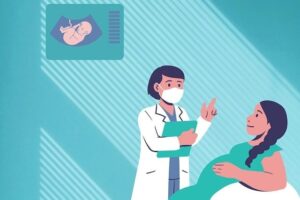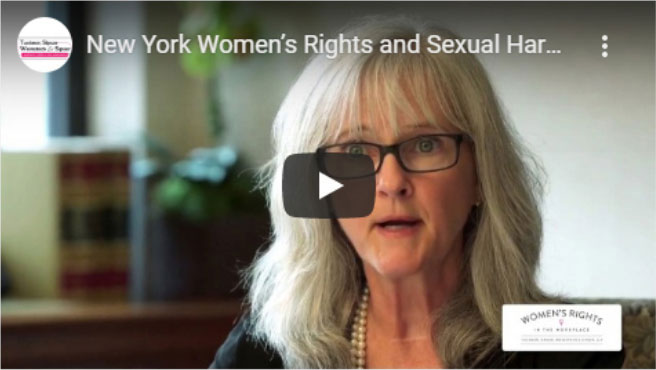 High-risk pregnancies can present significant medical challenges that may require workplace accommodations, including more frequent medical appointments, increased breaks, and activity restrictions. Many employees in New York and across the country wonder whether the law considers a high-risk pregnancy a disability and what protections exist in the workplace.
High-risk pregnancies can present significant medical challenges that may require workplace accommodations, including more frequent medical appointments, increased breaks, and activity restrictions. Many employees in New York and across the country wonder whether the law considers a high-risk pregnancy a disability and what protections exist in the workplace.
High-risk pregnancies can lead to discrimination in the workplace, where employers might make unfair employment decisions based on pregnancy or the perceived inconvenience of accommodating pregnancy-related medical conditions. Understanding federal, state, and local laws is critical for individuals who may face discrimination or need reasonable accommodations for their high risk pregnancies. Title VII of the Civil Rights Act of 1964 with its amendment, the Pregnancy Discrimination Act of 1978, is a foundational law that prohibits discrimination based on sex, including pregnancy, and protects employees from unfair treatment due to pregnancy-related conditions.
At Tuckner, Sipser, Weinstock & Sipser, we are NYC employment discrimination attorneys who fight for workers who are treated unfairly. We represent employees who experience pregnancy discrimination, including those whose medical conditions related to high-risk pregnancy are not accommodated. If you believe your employer has violated your rights, contact us for a free consultation to discuss your case with experienced pregnancy discrimination lawyers.
What is Pregnancy Discrimination?
Pregnancy discrimination occurs when an employer treats an employee unfavorably due to pregnancy, childbirth, or related medical conditions. This type of discrimination is illegal under federal, state, and local laws.
Examples of pregnancy discrimination include:
- Denying a pregnant employee a promotion or raise
- Refusing to provide reasonable accommodations for pregnancy-related conditions
- Forcing a pregnant employee to take unpaid leave instead of offering accommodations
- Retaliating against an employee for requesting accommodations
- Firing or demoting an employee because of pregnancy or childbirth
- Excluding pregnant employees from workplace benefits or job opportunities
Employers must provide pregnant employees with the same rights and benefits as other workers with temporary medical conditions. If you believe you have been discriminated against due to your pregnancy, you may have legal options and should understand how to prove pregnancy discrimination.
Understanding High-Risk Pregnancy and Workplace Protections
 A high-risk pregnancy is one where the mother or baby faces increased health risks due to pre-existing health conditions such as asthma, hypertension, heart disease, or an autoimmune disease or conditions of pregnancy such as gestational diabetes, preeclampsia, multiple pregnancies (twins, triplets, etc.), or preterm labor. These conditions may require bed rest, frequent medical appointments, or restrictions on physical activity, potentially impacting an employee’s ability to work under normal conditions.
A high-risk pregnancy is one where the mother or baby faces increased health risks due to pre-existing health conditions such as asthma, hypertension, heart disease, or an autoimmune disease or conditions of pregnancy such as gestational diabetes, preeclampsia, multiple pregnancies (twins, triplets, etc.), or preterm labor. These conditions may require bed rest, frequent medical appointments, or restrictions on physical activity, potentially impacting an employee’s ability to work under normal conditions.
Employers may not always recognize a high-risk pregnancy as a condition requiring workplace protections. However, legal protections exist under federal, New York State, and New York City laws that may classify pregnancy-related complications as a disability or otherwise require accommodations. It is important for pregnant employees, especially those who are high-risk, to understand their rights. Consulting with a pregnancy discrimination attorney can help you understand how these laws apply to your situation and advocate for your rights.
Federal Protections for Employees with a High-Risk Pregnancy
The Americans with Disabilities Act (ADA)
The ADA protects employees with disabilities and requires employers to provide reasonable accommodations. The ADA defines a disability as a physical or mental impairment that substantially limits one or more major life activities. While pregnancy alone is not always considered a disability under the ADA, complications arising from pregnancy, such as gestational diabetes, hyperemesis gravidarum (HG), and preeclampsia, may qualify as temporary disabilities if they substantially limit major life activities.
Under the ADA, employees experiencing a high-risk pregnancy may be entitled to workplace accommodations, such as:
- Modified work schedules
- Remote work options
- Additional breaks for medical needs
- Temporary reassignment to lighter duties
Employers must provide reasonable accommodations unless doing so would cause undue hardship to their business operations.
The Pregnancy Discrimination Act (PDA)
The PDA prohibits employers with 15 or more employees from discrimination based on pregnancy, childbirth, or related medical conditions. Employers cannot refuse to provide accommodations for pregnancy-related conditions if they provide similar accommodations for other temporarily disabled employees. This means that if an employer allows light-duty work for employees recovering from injuries or surgeries, they must extend similar accommodations to pregnant employees experiencing medical complications.
The Family and Medical Leave Act (FMLA)
The FMLA allows eligible employees to take up to 12 weeks of unpaid leave for serious health conditions, including pregnancy-related complications. This protection ensures that employees who need extended leave due to high-risk pregnancies can take time off without losing their jobs. However, FMLA eligibility requires that an employee work for an employer with at least 50 employees and meet specific tenure and hours requirements.
New York State Protections for Employees with High-Risk Pregnancies
 New York State Human Rights Law (NYSHRL)
New York State Human Rights Law (NYSHRL)
New York State offers broader protections than federal law. Under the NYSHRL, pregnancy-related conditions are explicitly considered disabilities, requiring employers to provide reasonable accommodations. Unlike the ADA and PDA, the NYSHRL applies to employers with as few as four employees, expanding coverage to more workers.
Employers in New York must consider requests for modified work duties, schedule adjustments, or temporary leaves for employees with high-risk pregnancies unless the accommodation poses an undue hardship.
New York Paid Family Leave (PFL)
New York’s Paid Family Leave law allows eligible employees to take paid leave for serious medical conditions, including pregnancy complications. Unlike FMLA, which is unpaid, PFL provides a portion of the employee’s wages during leave, offering financial support for those unable to work due to pregnancy-related issues. Additionally, the law ensures that pregnant women receive legal protections and benefits, safeguarding them from discrimination and ensuring equitable treatment in job-related decisions and accommodations.
New York City Protections for Employees with High-Risk Pregnancies
New York City Human Rights Law (NYCHRL)
The NYCHRL provides some of the strongest protections against pregnancy discrimination in the country. Employers in New York City must provide reasonable accommodations for pregnancy and related medical conditions, including:
- Rest breaks
- Schedule adjustments
- Temporary transfers to less strenuous positions
Employers cannot retaliate against employees who request accommodations or report discrimination.
If you are denied reasonable accommodations or otherwise discriminated against based on your high-risk pregnancy, an experienced New York City pregnancy discrimination attorney who is familiar with federal, state, and local employment law can help you fight for accommodations, job-protected leave, and compensation for any adverse employment action.
What to Do If Your Employer Refuses to Accommodate a High-Risk Pregnancy
 If your employer denies your request for accommodations or retaliates against you for seeking leave, you may have a legal claim. Steps to take include:
If your employer denies your request for accommodations or retaliates against you for seeking leave, you may have a legal claim. Steps to take include:
- Document Everything – Keep records of medical recommendations, communication with your employer including requests for reasonable accommodations, and any denials of accommodations.
- File a Complaint – Complaints can be filed with the Equal Employment Opportunity Commission (EEOC), the New York State Division of Human Rights, or the New York City Commission on Human Rights.
- Seek Legal Representation – It is advisable to consult with an experienced pregnancy discrimination lawyer as soon as possible. Our dedicated team can help you understand your pregnancy discrimination claim, secure your rights, and take appropriate legal action.
FAQ: High-Risk Pregnancy and Workplace Rights
Can my employer fire me for having a high-risk pregnancy?
No. Firing an employee due to pregnancy or related medical conditions violates federal, state, and local anti-discrimination laws. If an employee faces wrongful termination due to a high-risk pregnancy, it is crucial to consult with a pregnancy discrimination lawyer to prove pregnancy discrimination and seek justice.
Am I entitled to paid leave for a high-risk pregnancy in New York?
You may qualify for Paid Family Leave, which provides partial wage replacement for pregnancy-related medical conditions.
Does my employer have to provide me with light-duty work?
If your employer provides light-duty accommodations for other employees with medical conditions and temporary disabilities, such as those recovering from injuries, they must extend the same option to employees with pregnancy-related complications.
What if my employer refuses to accommodate my pregnancy complications?
You may file a complaint with the EEOC, the New York State Division of Human Rights, or the New York City Commission on Human Rights. Seeking legal counsel to advisable to make sure your complaint is filed by relevant deadlines and is based on strong evidence.
Can I take legal action if I experience pregnancy discrimination?
Yes. If you have been denied accommodations or faced retaliation due to your pregnancy, you may have grounds for a lawsuit. Call our office today at 212-766-9100 to schedule a free consultation with a dedicated NYC pregnancy discrimination lawyer.
What types of workplace accommodations are required for a high-risk pregnancy?
Accommodations may include flexible work hours, remote work, additional breaks, and temporary reassignments to less strenuous tasks.
Can I be forced to take unpaid leave instead of receiving accommodations?
No. Employers cannot force employees to take leave if reasonable accommodations can allow them to continue working.
Schedule A Free Consultation With An Experienced NYC Pregnancy Discrimination Attorney.
Understanding pregnancy discrimination laws is crucial to protect the rights of pregnant workers. If after reading this article about pregnancy discrimination laws you believe you are experiencing workplace discrimination due to a high-risk pregnancy, you do not have to face it alone. As experienced NYC pregnancy discrimination lawyers, we can provide individualized legal advice and representation to protect your rights.
Please call our office at 212-766-9100 or fill out the form below to schedule a free consultation with our NYC pregnancy discrimination lawyers to discuss your case and explore your legal options. Tuckner, Sipser, Weinstock & Sipser is an NYC law firm that represents employees in pregnancy discrimination cases, ensuring their rights are protected. Your rights matter, and we are here to help you fight for fair treatment in the workplace, including reasonable accommodations, job-protected leave, and any compensation to which you may be entitled.
 New York State Human Rights Law (NYSHRL)
New York State Human Rights Law (NYSHRL)